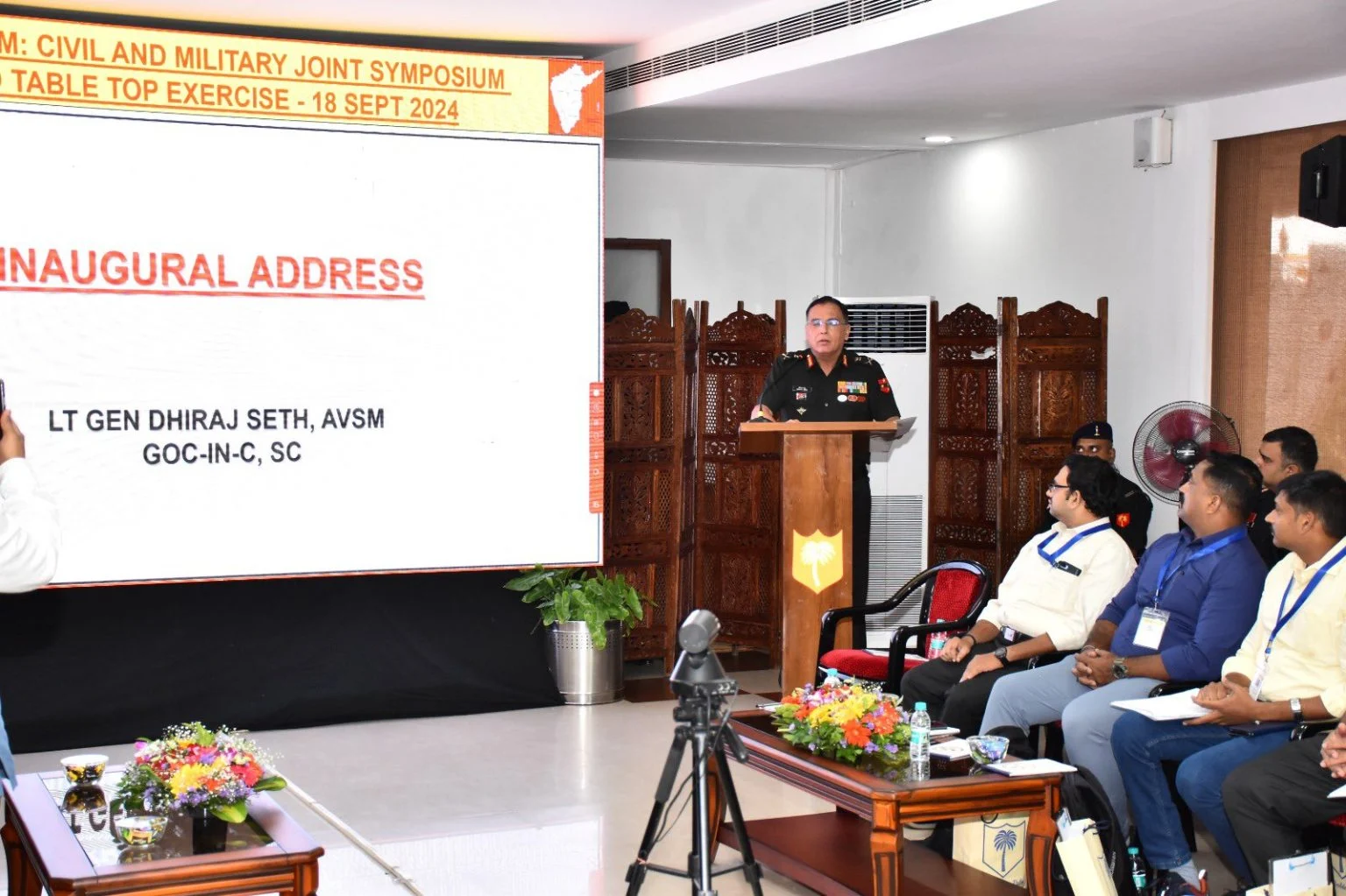In this first two-day integrated symposium and tabletop exercise known as Exercise AIKYA, which began today at Chennai, thrust areas for enhancing disaster management strategies were discussed. The entire event is a collaborative effort between NDMA and the Indian Army, with Lieutenant General Dhiraj Seth, AVSM, the Army Commander of Southern Command, inaugurating it.
AIKYA Exercise Brings Together Central and Southern States Stakeholders in Round of Extensive Discussions with the Latest Technological Improvements in Disaster Management Officials from six southern states met with decision-makers from the central government to discuss the latest technological improvements in disaster management. The conference simulated an emergency situation through a tabletop exercise, refining protocols and procedures to respond to disasters as a united force.
In his inaugural address, Lt Gen Seth appreciated the work carried out by the Karnataka Kerala Sub Area and the Indian Army in the recent landslide at Wayanad. He welcomed the swift action taken to minimize the impact of the disaster and gave emphasis to the cross-agency collaboration that needs to be accomplished in order to manage a crisis successfully.

Lt Gen Seth emphasized the partnerships needed to be strong and robust, involving different agencies in disaster management. He called on participants to embrace innovative technologies related to advanced predictive tools, communication solutions, and logistical support systems as significant necessities for strengthening disaster preparedness and response capabilities.
The symposium includes in-depth discussions on leveraging cutting-edge technologies to enhance disaster management, even strategies for improving interagency coordination. The tabletop exercise is part of the event, where participants would apply these discussions in a simulated environment for hands-on experience, which is the critical aspect to ensure preparedness.
By the end of Exercise AIKYA, symposium are expected to display learning results which would make place more resilient strategies and frameworks for disaster management so that India’s response mechanisms are better equipped to handle future natural disasters and many lives are saved, with reduced impact of crises.
